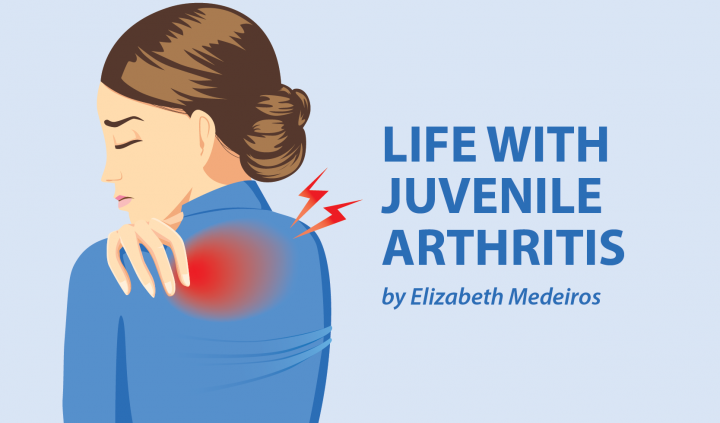Many resources exist for children with juvenile arthritis (JA) and their families, from support groups to JA camp. At gatherings, we talk about all sorts of topics such as attending school and playing sports. But something we rarely discuss is the experience of becoming an adult with juvenile-onset arthritis.
Many people believe that kids with JA will “grow out” of their disease at some point. While some kids will achieve remission by adulthood, this is not always the case. And even if JA goes into remission, joint damage can cause ongoing pain. So, while we should hope for the best, we do need to plan for a future with arthritis.
My experience
As a teenager, I had the privilege of going to JA camp and meeting awesome kids who also deal with rheumatic conditions. It was a wonderful experience to be able to share our struggles and successes.
Many of us still deal with JA and chronic pain as young adults. While we are disappointed that our disease is ongoing, we don’t allow it to discourage us from following our dreams. Chronic pain doesn’t prevent us from having a fulfilling and happy life. It’s merely a matter of being OK with our change of plans while keeping our options open.
Careers that work
Finding an arthritis-friendly career can be tricky because of the ever-changing nature of the disease. A common assumption is that working in an office is the best solution for those with arthritis. However, I’ve found working a desk job to be more painful than the summer when I was a photographer for a busy summer camp. People with arthritis have all kinds of jobs with adaptable schedules to accommodate their health needs.
My advice is to be flexible. Start with choosing college majors and training that can lead to a variety of careers. For example, I know administration professionals who divide their time between an office and remote workspaces. I’ve also heard of nurses with JA who work in busy emergency rooms, slow-paced nursing homes, or at a desk.
Dating with a chronic illness
Lately, my Facebook feed has blown up with engagements and wedding photos — there are even a few babies on the way. It’s an exciting time!
Sometimes, I look back on my teenage years to when some of my girlfriends and I suffered from low self-esteem. We thought that living with JA made us unlovable. But now we’re all in long-term, loving relationships. While we did encounter people who didn’t want to “deal” with our chronic pain, it didn’t happen as often as you’d think. I know many amazing people who have looked past their partners’ health status and loved them for who they are.
However, it’s not easy to date someone who is chronically ill. It requires a lot of patience, especially during flares. Sometimes a partner may feel more like a caregiver. But a relationship can work with compromise, effort, and communication.
Can I be a parent?
The decision to start a family is a personal one. JA is not contradictory to pregnancy and many women with arthritis go on to have healthy babies. However, a couple should consider several factors before having a child, including current health status, mobility, and available resources.
While it’s complicated to parent while living with arthritis, it’s not impossible. A useful resource for parents is MotherToBaby, which has information about how medications affect conception, pregnancy, and breastfeeding. Have a look for online groups and forums for parents with arthritis.
Change of plans
We will face setbacks, heartbreaks, and flares along the way. On several occasions, I thought I wouldn’t be able to finish college because of the levels of pain I was dealing with. I did graduate, but completing my studies was incredibly challenging.
I’m learning that adulthood can be demanding, and having juvenile-onset arthritis brings additional complications. However, it’s also rewarding and filled with joy and love. Those moments of happiness come more easily when we keep our minds open. We can achieve amazing things when we’re willing to adjust our plans.
***
Note: Juvenile Arthritis News is strictly a news and information website about the disease. It does not provide medical advice, diagnosis, or treatment. This content is not intended to be a substitute for professional medical advice, diagnosis, or treatment. Always seek the advice of your physician or other qualified health provider with any questions you may have regarding a medical condition. Never disregard professional medical advice or delay in seeking it because of something you have read on this website. The opinions expressed in this column are not those of Juvenile Arthritis News, or its parent company, BioNews Services, and are intended to spark discussion about issues pertaining to juvenile arthritis.

